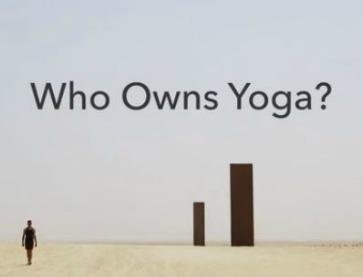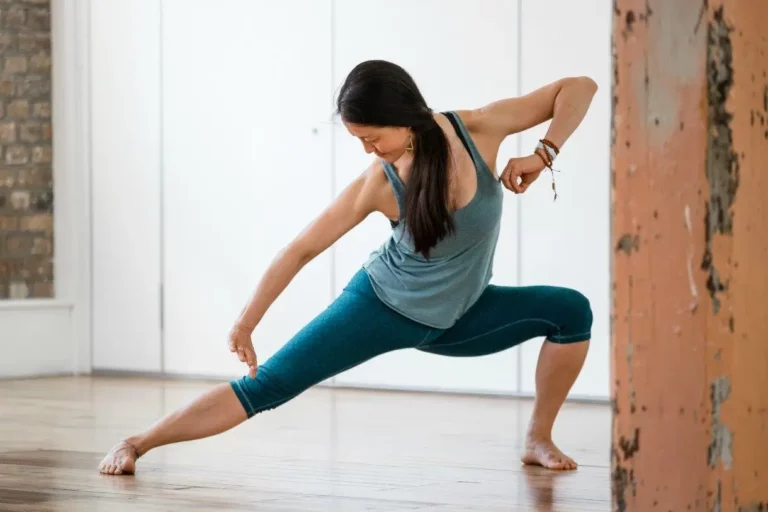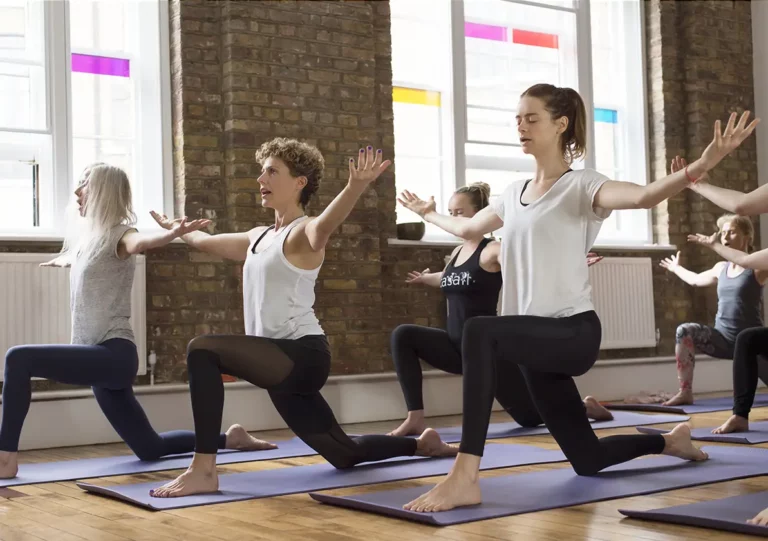Who owns yoga? This is the central question that filmmakers ask in a new feature-length documentary of the same name that explores the changing nature of yoga in modern society where the practice has been simultaneously glamorised, bastardised and commercialised.
Last year, a television version was aired to such acclaim on Al Jazeera TV, that the filmmakers Micah Garen, Marie-Hélène Carleton, and Bhanu Bhatnagar, are raising a Kickstarter fund to turn it into a 90-minute film that will be released in film festivals.
I’ve had a sneak preview of the film, and it’s a fascinating, in-depth study on the state of 21st Century yoga and the players that exist within it, including four triyoga teachers, as well as Dharma Mittra, Tara Stiles, Deepak Chopra, Sharon Gannon, David Life and leading yoga scholar David Gordon White.
Bhatnagar, an Al Jazeera journalist and yoga teacher who presents the documentary, asks some difficult questions of everyone, forcing them to confront, defend and ultimately take responsibility for the role they play in contemporary yoga.
It’s clear yoga is deeply personal to Bhatnagar who struggles to leave behind his beliefs about what constitutes yoga when interviewing a group of Christians in Middle America who recite bible verses as they move through sun salutations. He finds himself in London with his hands balled into a fist, alternating punches with Warrior 2 when taking the oxymoronic Boxing Yoga class. And he questions parents in California who bought a lawsuit against the Encinitas School District to pull yoga from the curriculum, saying it was a form of indoctrination that cannot be separated from Hinduism.
In London, Bhatnagar talks to several triyoga teachers, including Emma Henry in a Day-Glo skeleton costume whose Rave Yoga is “traditional yoga mixed with rave culture, minus the drugs and alcohol,” according to Bhatnagar. He speaks to Stewart Gilchrist, famous for the sweaty intensity of his classes, who finds himself torn between being popular and remaining authentic: “Do you teach something that’s in your heart or do you teach something that will get people interested?” Gilchrist ponders.
Bhatnagar also interviews triyoga teacher Marcus Veda after an open-air Rocket Yoga class in Covent Garden, on the rapid advancement of the yoga teacher in relation to his own past occupation: “It used to be everyone was a DJ. Now everyone is a yoga teacher,” Veda mused. And Bhatnagar came to visit me at home to talk about an article I wrote criticising the proliferation of yoga selfies: “Selfies by their very nature cannot convey the grace, the poise, the breath or the sense of well-being one experiences when practicing yoga,” I said.
Bhatnagar’s probing made me think deeper about the fine line one has to walk when it comes to Selfies – teachers rely on them to market their classes, yet must guard against the ego running wild.
My favorite part of the film came when Bhatnagar put the founder of Yogaglo in an awkward spot by showing him a 1993 film of Pattabhi Jois teaching students who were arranged in rows with an aisle running down the center – a set-up remarkably similar to Yogaglo’s patented class arrangement.
“I don’t see how this is different from your patent,” Bhatnagar insists.
Somewhat uncomfortably, Derik Mills responds: “The mats are configured differently.” Weeks after the interview – but not because of it – Yogaglo forfeited the issued patent, responding to what it called “concern within the yoga community and beyond.”

Tara Stiles, who the New York Times called a yoga rebel, also faced some difficult questions when Bhatnagar asked her to explain her W-Hotel yoga campaign slogan: “Why be Zen when you can be fabulous?” You see Stiles squirm, and I sensed she wished she could take the words back. It was awkward even to watch.
So what does Bhatnagar conclude as to the over-arching question of ownership? That though yoga should belong to everyone, the ancient tradition is in danger of losing its way amid the deeply commercialised, highly politicised world in which we live.
To contribute to the Kickstarter campaign, which ends on April 30, visit https://www.kickstarter.com/projects/198313123/who-owns-yoga So far, 94 backers have contributed $10,292. If $20,000 is raised, the money will be used to cover editing and post-production costs. It will also be used to cover film festival submission fees, including the L.A, Copenhagen and Toronto film festivals.
Depending on how much you contribute, rewards include a digital download of the film, a yoga class on top of London’s Shard, or a Manduka travel mat.
Genny teaches Vinyasa Flow, Ashtanga and Children’s Yoga. She is BWY- and Yoga Alliance-certified, having graduated with Distinction from triyoga’s Teacher Training program. Genny came to yoga in 2000, finding joy and solace in the practice against the backdrop of a global journalism career covering 9/11, South American financial meltdowns and Asian health epidemics for Reuters and Time Magazine.









